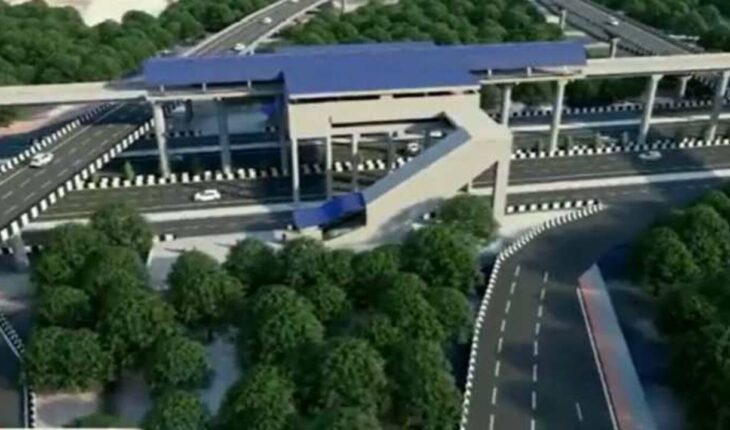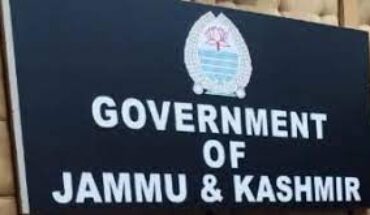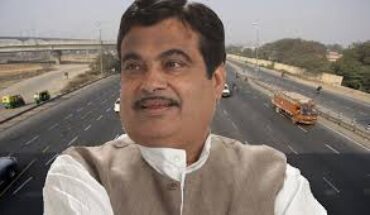New Delhi : Lessening the travel duration from 2 hours to 20-30minutes from Alipur to IGI Airport, with 27 flyover, 26 smaller bridges and 17 pedestrian subways, this six- lane Urban Extension Road (UER) II is going to be the capitals’ third Ring Road, Union Minister of Road Transport and Highways Nitin Gadkari said. It will also be among the first national highways to be an e-highway, on e-buses, e-trolleys and e-cars on the route, cables and other equipment will also be installed along the service lanes.
The 75 KM long road will connects NH-1 to Dwaka and Bahadurgarh along the western rage, it will pave through the Kanjhawala, Nangloi, Najafgarh, Dwarka Sector 24, Bawana and Sonipat Bypass area after starting at the NH1 interchange. Moreover, a section of the road will link the Bahadurgarh bypass and Dhichaon Kalan to the national highway.
Urban Extension Road Project (UER-II), being constructed at an estimated cost of Rs 7,716 crore as part of the Delhi decongestion plan, will be completed and inaugurated by September this year, Union Minister Nitin Gadkari said on Thursday.
The national capital’s third ring road is proposed to be developed in five packages.
Gadkari inspected the progress of the Urban Extension Road Project (UER-II) with Lt Governor of Delhi Vinai Kumar Saxena, Member of Parliament Hans Raj Hans, Parvesh Sahib Singh Verma and other higher officials.
“We are developing UER-II as a component of the Delhi Decongestion Plan. The project involves the construction of UER-II in five different packages with costs of Rs 7,716 Crore.
So far, 57 per cent of work is complete: 55 per cent on Package 1, 40 per cent on Package 2, 90 per cent on Package 3, 68 per cent on Package 4 and 67 per cent on Package 5.
While the NHAI had set a deadline of October 2023, Gadkari said while briefing the media, it will be completed by December.
The road transport and highways minister said as part of this project, the National Highways Authority of India (NHAI) is utilising 20 lakh tonne of plastic garbage sourced from the Ghazipur landfill.
NH-344M (package 1-3) will serve as an additional western ring road in Delhi, lessening the travel duration from 2 hours to 20 minutes to IGI Airport, offering an alternative route for traffic from West/South Delhi, and Gurgaon heading towards NH-44, Chandigarh, Punjab and J&K.
It also connects to the proposed IICC in Dwarka, improving traffic flow in Delhi.
NH-344P (package 4) will begin at NH-344M and end at NH-352A (Barwasini bypass), serving as a spur to Sonipat Bypass. This project will alleviate traffic on NH-44 and establish connectivity between Delhi, KMPE, and Delhi-Katra Expressway via KMPE.
NH-344N (Pkg 5) is a spur to the Bahadurgarh bypass, connecting NH-344M (near Village Dhichaon Kalan) in Delhi to NH-10 (near Bahadurgarh).
It eases congestion on NH-10 in Delhi and improves connectivity between Eastern Haryana and Kanjhawala in Delhi, as well as a shorter connection between Delhi and KMP Expressway.
Gadkari also said that repair work on the Delhi-Jaipur stretch of National Highway 8 is going on.
The minister said, as far as Delhi is concerned, projects worth Rs 60,000 crore are being implemented to reduce air pollution in the national capital.
Why the need for a new road?
The National Capital territory of Delhi is a massive metropolitan area located in the heart of northern India. It is bordered by Haryana and Uttar Pradesh and thus attracts a huge quantum of traffic not only from within Delhi but also the surrounding region.
In order to cater to this regional traffic level, Inner and Outer Ring Roads for Delhi were planned many decades ago in 1962, of which only inner ring roads could be completed whereas outer ring roads are still not a full ring.
Additionally non-Delhi destined traffic i.e. traffic to/from North Indian states (Punjab, Northern Haryana, J&K, Himachal Pradesh) to remaining Indian states (Rajasthan, Southern Haryana, Gujarat, Maharashtra) has to pass through Delhi due to absence of alternate network, which leads to heavy congestion on the existing ring roads.
To address this issue and save Delhi through decongestion, the Delhi Development Authority (DDA) as part of the Delhi master Plan 2021 proposed UER-II as the third ring road of Delhi.






